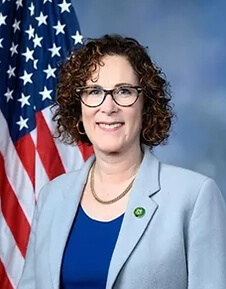Housing
Housing is a foundational social determinant of health. Redlining, segregation, and gentrification are major ways that health disparities have emerged and are sustained in the U.S. over time. Research has shown that those experiencing homelessness or housing insecurity face substantially higher risk of physical and mental illness and have consistently higher health care expenditures due to higher rates of chronic disease and emergency treatment usage. TRCC highlights policies and housing interventions that improve housing stability and health outcomes while decreasing healthcare costs and advancing health equity.
Resources and Information
-
American Public Health Association (APHA) report: “Creating The Healthiest Nation: Health and Housing Equity”
-
APHA and Kaiser Permanente report: “Housing Affordability and Quality: A Driver of Community Health”
-
Urban Institute article: “The Connection between Housing, Health, and Racial Equity”
-
Green and Healthy Homes Initiative report: “Achieving Health and Social Equity Through Housing”
-
International Journal of Environmental Research and Public Health article: “Investing in Public Health Infrastructure to Address the Complexities of Homelessness”
-
Medical Care Journal article: “Does Housing Improve Health Care Utilization and Costs? A Longitudinal Analysis of Health Administrative Data Linked to a Cohort of Individuals With a History of Homelessness”
-
AMA Journal of Ethics article: “How Medicaid and States Could Better Meet Health Needs of Persons Experiencing Homelessness”
-
The Lancet journal article: “Adverse childhood experiences and related outcomes among adults experiencing homelessness: a systematic review and meta-analysis”

DASH (Decent, Affordable, Safe Housing for All) Act
S. 680 - Senator Ron Wyden (D-OR)
-
-
Introduced on 3/27/23
-
5 Co-Sponsors as of 3/18/24
-
H.R. 6970 - Representative Val Hoyle (D-OR)
-
-
Introduced on 1/11/24
-
1 Co-Sponsor as of 3/18/24
-

Description
This bill would:
-
Address the housing crisis by establishing a Housing Choice Voucher for individuals or families experiencing homelessness or at risk of homelessness with incomes under 50 percent of the area’s median income.
-
Provide voucher recipients with access to health care services including mental health, dental, and vision, substance use disorder treatment and assistance in enrolling in Medicare or Medicaid, the Supplemental Nutrition Assistance Program or other economic assistance programs.
-
Provide recipients with access to family self-sufficiency programs, credit or housing counseling, education services including credit recovery, and transportation to any of these services.
-
Allocate $10 billion in the Housing Trust Fund (HTF) for the next ten years to states to acquire, develop or rehabilitate deeply affordable housing.
-
Include funding for a pilot program to invest in innovative, cost-effective and efficient building methods to reduce the cost of developing affordable housing.
-
Strengthen the Low-Income Housing Tax Credit (LIHTC) by preserving and protecting current LIHTC properties, dramatically expanding production, and extending housing to those at extremely low incomes.
-
Establish a Renter's Tax Credit and Middle-Income Housing Tax Credit (MIHTC) and would invest in homeownership in underserved communities with new tax credits and downpayment assistance, including a down payment tax credit for first-time homebuyers.
Status
-
The bills were referred to the House Committees on Ways and Means and Financial Services and the Senate Committee on Finance.
Additional Information
-
Senate Finance Committee: Wyden Reintroduces Comprehensive Bill to End Homelessness and Tackle Housing Affordability Crisis
-
Sen. Wyden’s office: DASH Act One pager
-
National Low Income Housing Coalition: Senator Wyden Introduces DASH Act; NLIHC Continues to Oppose Wasteful MIHTC Proposal
-
Affordable Housing Tax Credit Coalition: Decent, Affordable, Safe Housing for All (DASH) Act Includes Key AHCIA Provisions
-
KVAL News article: Wyden addresses housing concerns in reintroduction of DASH Act
-
Rep. Carbajal's Office: Reps. Carbajal, Hoyle Introduce Bicameral Dash Act Implement Range Of Housing Affordability And Homelessness Prevention Solutions
-
National Low Income Housing Coalition: Representatives Hoyle and Carbajal Introduce “DASH Act”; NLIHC Continues to Oppose Wasteful MIHTC Proposal
Contact
- For further information about this issue or other legislation in the ELM, please contact Hannah Miller at hmiller@rootcausecoalition.org
